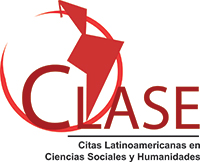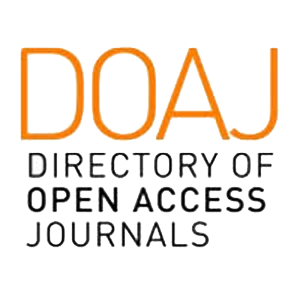Estructura fiscal y descentralización en México: un análisis institucional con énfasis en la disfuncionalidad en el uso de recursos de los Estados, 2016
Abstract
This essay aims to analyze the institutional factors that lead to a problem of the fiscal structure, which given the lack of capacity and institutional dysfunction and the size of the public sector, require financing dependent on federal participations. What it impacts the weakness of controls and the application of the Law, for being dependent on the Federation. In the statistical evidence, it was found that there are weaknesses and dysfunction in some states, in the face of risks and the smaller margins of maneuver, when it comes to evaluating the financing of local governments and the limited forms of local collection.
Downloads
References
Alor, Angélica M. & Humberto Valenzuela, “Federalismo en el Estado Mexicano”, Revista El Buzón de Pacioli, Núm. especial 74, octubre 2011, pp. 1-21. Disponible en: www.itson.mx/pacioli [Consultado mayo 15, 2019].
Amieva-Huerta, Juan, Temas selectos de las finanzas pública, Porrúa, México, 2002, pp. 118, 174 y 217.
Béjar A., Luisa, “De la centralización a la descentralización, el nuevo diseño institucional del Congreso de la Unión”, Foro Internacional, vol. L, núm. 1, Colegio de México, 2010. pp. 115-145.
Cabrero, E. y A. Carrera, “Fiscal Decentralization and Institutional Constrains. Paradoxes of the Mexican Case”, Documento de Trabajo, DAP-CIDE , México, 2001.
Cabrero, Enrique (coord.), Los dilemas de la modernización municipal: estudios sobre la gestión hacendaria en municipios urbanos de México, CIDE /Miguel Ángel Porrúa, México, 1996.
Cabrero M., Enrique, “Capacidades institucionales en gobiernos subnacionales de México ¿Un obstáculo para la descentralización fiscal?”, Gestión y Política Pública, vol. XIII , núm. 3, segundo semestre, 2004, pp. 753-784.
Carrera, Ady P., “Descentralización fiscal y desarrollo local en México”, XI Congreso Internacional del CLAD sobre la Reforma del Estado y de la Administración Pública, Ciudad de Guatemala, 7 - 10 nov. 2006, pp. 1-21.
Castillo, Gerardo & Sergio Hernández, “Retos para el fortalecimiento de los ingresos tributarios en México”, Finanzas Públicas, vol. 4, núm.7, Centro de Estudios de las Finanzas Públicas, Cámara de Diputados, México, 2012, pp. 155-158.
Celasun, Oya, Francesco Grigoli, Ms. Keiko Honjo, et. al., “Fiscal Policy in Latin America: Lessons and Legacies of the Global Financial Crisis”, IMF Staff Discussion Notes, núm. 15-16, Washington D.C.,
abril 2015, p. 40.
Comisión Económica para América Latina y el Caribe ( CEPAL ), El pacto fiscal: fortaleza, debilidades y desafíos, CEPAL , Santiago de Chile, 1998, p. 283.
Comisión Económica para América Latina y el Caribe ( CEPAL ), Descentralización fiscal: marco conceptual. Proyecto regional de descentralización fiscal, Santiago de Chile, Naciones Unidas, CEPAL , 1993, p. 84.
Comisión Económica para América Latina y el Caribe ( CEPAL ), Globalización y desarrollo, CEPAL , Santiago de Chile, abril 2002, p. 159.
De Szentes, H. & T. Bacskay, “Teorías fiscales. Las teorías fiscales de la teoría económica burguesa-vulgar”, 2010, pp. 169-219. Disponible en: http://grupos.emagister.com/documento/teoria_y_politica_fiscal [Consultada el 5 de abril 2018].
Eggertsson, Thrainn, “Economic Behavior and Institutions”, Cambridge University Press, Cambridge UK , 1990, pp. 1-357.
García, Nubia L., “La autonomía financiera, las capacidades administrativas y el diseño institucional en la contratación de deuda pública municipal”, Finanzas Públicas, Cámara de Diputados, CEFP , México, vol. 6, núm. 18, México, 2014, pp. 126-205.
Goode, Richard, Government Finance in Developing Countries, Brookings Institutions, Washington D. C., 1984, pp. 1-335.
Graham, Carol, Grindle, M., Lora, E. & Seddon, J., ‘‘Improving the Odds: Political Strategies for Institutional Reform in Latin America’’, Inter-American Development Bank, Washington D. C., 1999, pp. 1-45.
Hillman, Arye L., “Public finance and public policy: responsibilities and limitations of government”, Cambridge University Press, Cambridge UK , 2009, pp. 1-759.
INEGI , Censo Nacional de Gobiernos Municipales y Delegacionales, México, 2017.
Knack, Stephen & Philip Keefer, “Institutions and economic performance: cross country test using alternative institutional measures”, Economics and Politics, vol. 7, núm. 3, 1995, pp. 207-227.
Maguire, Steve & Cynthia Hardy, “Discourse and Deinstitutionalization: The decline of DDT ”, Academy of management journal, vol. 52, 2009, pp. 148–178.
Martner, Ricardo y Eduardo Aldunate, “Política fiscal y protección social”, Serie Gestión Pública Número 53, ILPES (LC/L.2485-P), CEPAL , Santiago de Chile, 2006, pp. 1-49.
Meléndez Muñoz, Iraima C., Fabio Maldonado-Veloza, “El institucionalismo como factor determinante en el proceso de gobernabilidad”, Economía, vol. XXXIX , núm. 38, julio-diciembre, 2014, Venezuela, Universidad de los Andes, pp. 59-86.
Meyer, John W., & W. Richard Scott, Organizational Environments, Sage Publications, Inc., Calififornia, 1983.
Oates, Wallace, “The effects of property taxes and local public spending on property values: an empirical study of taxes capitalization and Tiebout Hypothesis” Journal of Political Economy, vol. 77, núm. 6, noviembre-diciembre, 1969, pp. 957-971.
Oates, Wallace, Fiscal Federalism, Harcourt Brace Jovanovich, New York, 1972.
Pierre-Richard, Agenor & Peter Montiel, La macroeconomía del desarrollo, Fondo de Cultura Económica, México, 2000, pp. 1-947.
Powell, Walter W. & Paul J. DiMaggio, The New Institutionalism in Organizational Analysis, University of Chicago Press, Chicago USA , 1991, pp. 232–263.
Ramírez, Eduardo, “Federalismo fiscal en México y comparaciones internacionales”, en José L. Calva (coord.), Reforma fiscal integral. Análisis estratégico para el desarrollo, vol. 5, Consejo Nacional de Universitarios y Juan Pablos Editor, México, 2012, pp. 259-288.
Retchkiman, Benjamín, Política fiscal mexicana, Problemas del Desarrollo, vol. 6, núm. 24, noviembre 1975- enero 1976, México, UNAM, 1979, pp. 83-100.
Rodden, Jonathan A,. “Reviving Leviathan Fiscal Federalism and the Growth of Government,” International Organization, Cambridge University Press, vol. 57, núm. 4, 2003, pp. 695-729.
Rodden, Jonathan A., The Political Economy of Federalism, Massachuttes Institutes Tecnology, USA , August 15, 2005.
Rodrik, Dani, ‘‘Institutions for High-Quality Growth: What they Areand How to Acquire Them’’, NBER Working Paper 7540, Cambridge, MA : IMF , February 2000, pp. 1-49.
Rosen, Harvey, Hacienda Pública, 5 a ed., Mc Graw Hill, Madrid, España, 2002.
Scott, W. Richard & John W. Meyer, Institutional environments and organizations: Structural complexity and individualism, Sage Publications, Inc., Thousand Oaks, California USA, 1994.
Simon, Hebert, “The theories of bounded rationality, en C. McGuire & Roy Radner (comps.), Decision and Organization, American Elsevier, Nueva York, 1972, pp. 161-176.
Simon, Hebert, Administrative Behavior, 2a ed., CR 1947, The Free Press, New York, 1961, pp. 1-361.
Sour, L. y Girón, F., “The flypaper effect in mexican local governments, 1990-2006”, Documento de Trabajo DTAP , núm. 217, CIDE , México, 2008, pp. 1-21.
Uvalle, Ricardo, “Los fundamentos institucionales de la gestión pública”, VII Congreso Internacional del CLAD , Centro Latinoamericano de Administración para el Desarrollo ( CLAD ), Lisboa, Portugal, octubre 2002, pp. 1-21.
Weber, Max, Economía y Sociedad, Fondo de Cultura Económica, México, 2014.
Weber, Max, La ética protestante y el espíritu del capitalismo, Fondo de Cultura Económica, México, 2011.
Williamson, Oliver, Las instituciones económicas del capitalismo, 1a. ed., Fondo de Cultura Económica, México, 1989, pp. 1-380.
Williamson, Oliver, “The economics of organization: The transaction cost approach”, en American Journal of Sociology, 87, The University Chicago Press, Chicago, Illinois November, 1981, pp. 548-577.

This work is licensed under a Creative Commons Attribution-NonCommercial-ShareAlike 4.0 International License.














